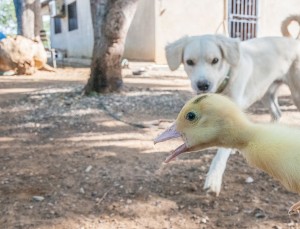9.25 Some Interviewing Cautions
No matter how careful you are in selecting your interviewees, planning your questions and actually conducting the interview, there are many ways for things to go wrong. Here is a cautionary tale that illustrates some of the problems that might arise.

An investigative reporter for a local TV news station in Minneapolis, MN had what sounded like a hot tip. It appeared that a Minnesota puppy mill might be sending dogs to a meat market in New York City’s Chinatown.
The reporter called the shop in New York and asked “Do you sell dogs?” The man who answered the phone said, “Yea. We sell dogs.” Reporter: “Dogs for people to eat?” The man: “Uh, yea. We sell many kinds of meat.” The reporter asked again, “Dogs for people to eat?” The man: “Yes.” The reporter subsequently went on the air with a sensational story that alleged that the puppy mill owner in Minnesota was selling puppies for food. The story and video was also posted on the station’s web site.
Now, substitute the word “ducks” for “dogs.” Those two words might sound the same over the phone, and in fact, the New York shop sells ducks for food, not dogs. The man who answered the phone misunderstood the reporter’s question, and the reporter misunderstood the man’s answer in a cascading comedy of errors.
A simple communication error led to a major faux pas for the reporter and the TV station. The story was pulled from the website and the station issued a terse “no comment” when questioned about the error.
Listening skills are as important as speaking skills. And double- and triple-checking the “facts” of an interview are equally important.

